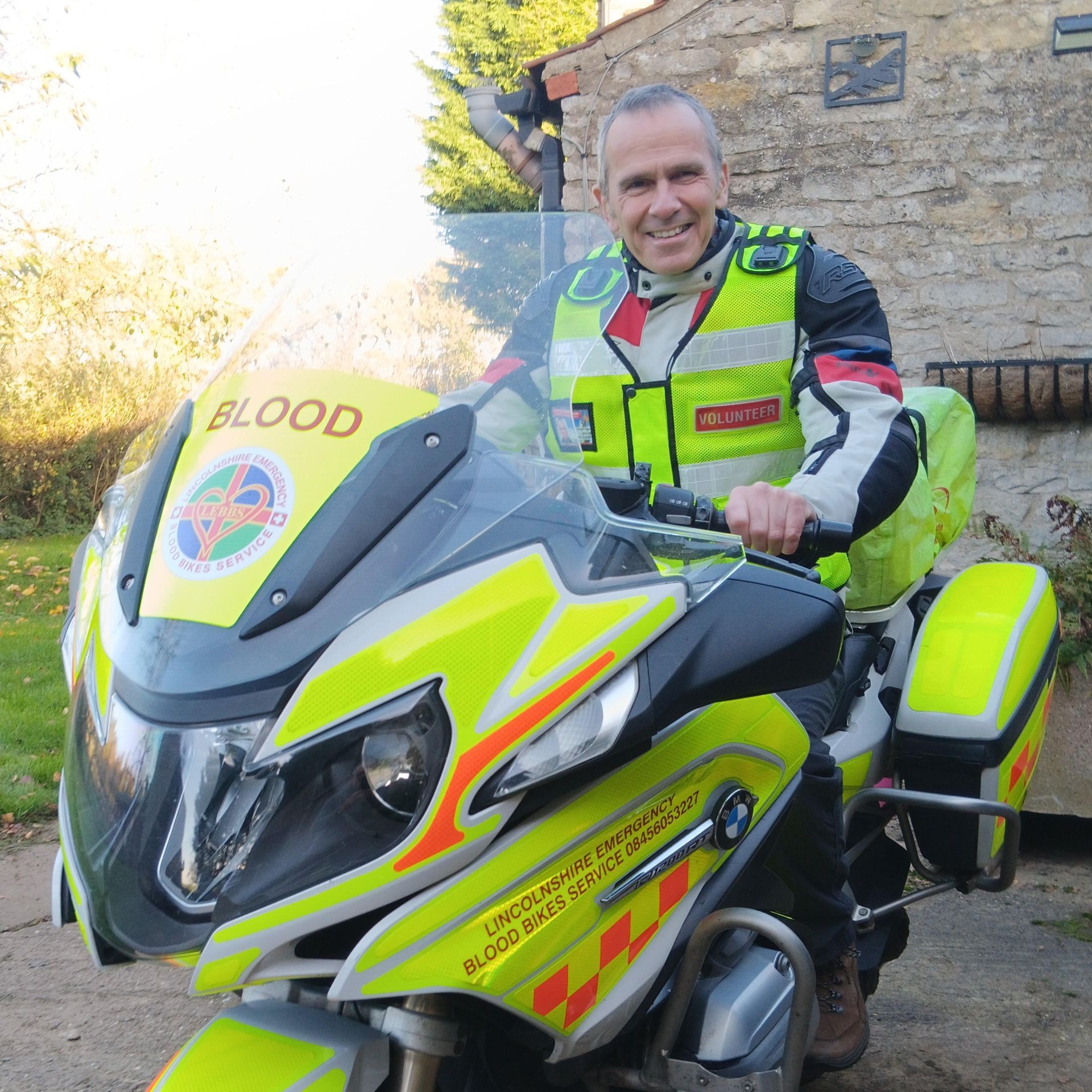Lincolnshire Emergency Blood Bikes
An insight into Lincolnshire Emergency Blood Bikes Service (L.E.B.B.S) by volunteer Matt Hopkins, Senior Customer Integration Engineer at tlmNexus.
The Lincolnshire Emergency Blood Bikes Service (LEBBS) formed in 2012, and we now transport blood, platelets, samples, human donor milk, baby ‘Blood Spot’ (screening) tests and other clinical products. We operate between NHS hospitals/sites across Lincolnshire and beyond, also providing a daily ‘blood on board’ service to the Lincs and Notts Air Ambulance. Altogether, we serve over 1.1 million potential NHS Service Users in the 2nd largest county in England.
The first Blood Bike groups emerged in 1960s, and there are now over 40 groups across the UK under the Nationwide Association of Blood Bikes (to lobby government and set standards etc.). The UK Government recognised Blood Bikes as a Front-Line Emergency Service in 2015 (with yellow and orange vehicle livery). All riders have passed an Advanced Motorcycle Test – however, while our vehicles are liveried, we don’t have ‘blue lights’ and we adhere to all the same traffic laws as everyone else.
The operational side of LEBBS comprises controllers and riders. The controllers take calls from hospitals and co-ordinate collection & delivery with the riders on shift at the time. Supporting this are vehicle fleet managers, an NHS liaison team, and a fundraising arm (we are a charity and rely 100% on public donations). Our charitable status also requires a formal constitution with a committee to ensure all is efficient and above board. We are all unpaid volunteers, and we are so grateful to tlmNexus for supporting us over 2024 – our running costs are pretty high, and you wouldn’t believe the difference it makes.
Controllers and riders volunteer around their work and family commitments. I commit to one weekend (comprising 2 x 12 hr shifts) per month. My prep starts during the preceding week (picking up the bike, checking it over and booking it in etc.). I’m up early on Saturday for the 0700 shift start, ready to respond to a call. A typical hospital-to-hospital run will inevitably develop into other jobs thereafter, or I’ll get diverted somewhere else while in transit. We often deploy beyond Lincolnshire (the NHS Blood Centre at Barnsley and Nottingham City Hospital are regulars). We are also often involved with cross-country relays with other blood bike groups. The idea is to be back home by 1900, but reality means I’m often back later. I have to manage rest, hydration and food on an opportunity basis in order to keep myself safe and alert. Once home, I re-fettle the bike, comms and my own kit ready for 0700 the next day. After my shifts are done, I then need to get the bike on to the next allocated rider.
Most calls are routine, but we regularly get urgent calls. We don’t get the full background to ensure we remain calm and focussed. However, a recent talk by the Lincoln Pathology (Blood) Lab did expand on typical genuine scenarios - from patients haemorrhaging on operating tables to blood samples requiring urgent diagnosis for A&E. This highlights further why we are so grateful for the support you’ve given us. A couple of stats for the last full LEBBS year (2023) are below.
127,433 miles covered.
2,080 hospital collections/deliveries (514 urgent)
Thank you again tlmNexus!!!!
From all at LEBBS

